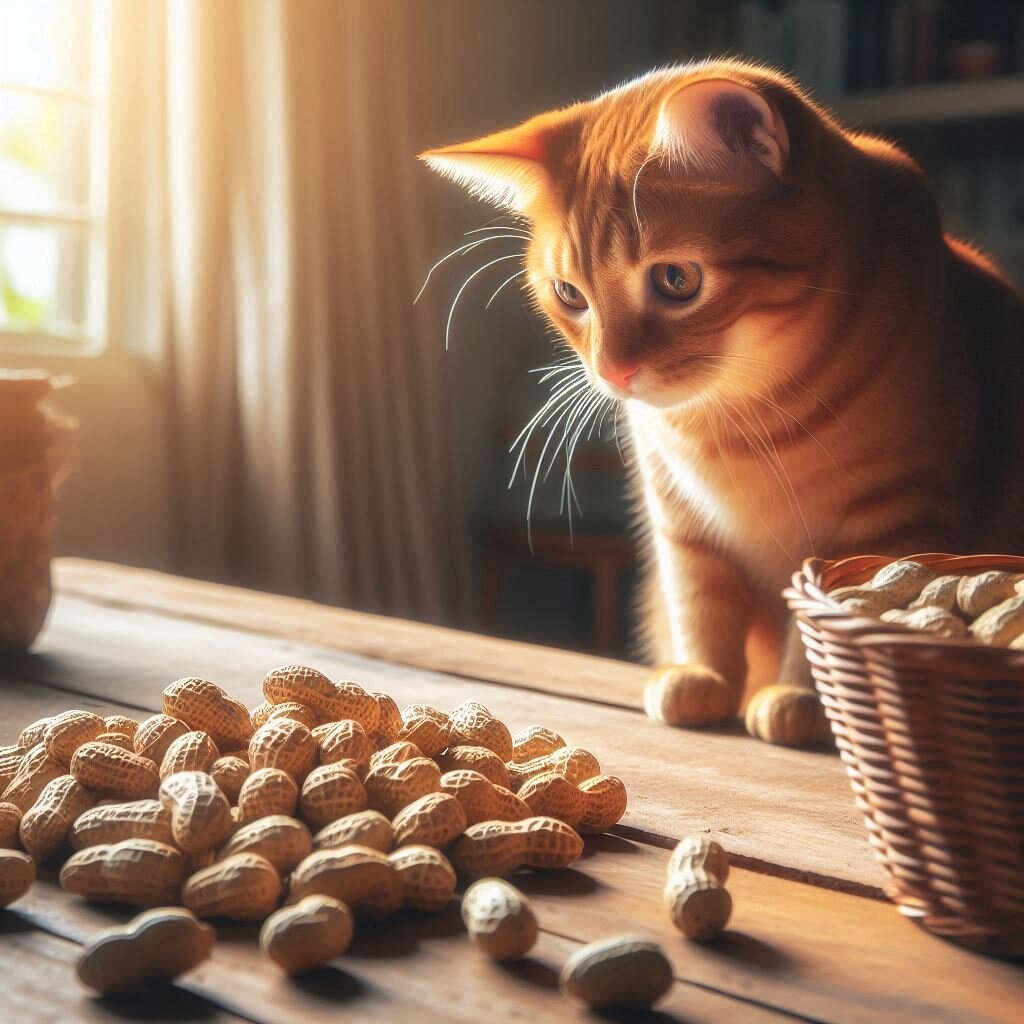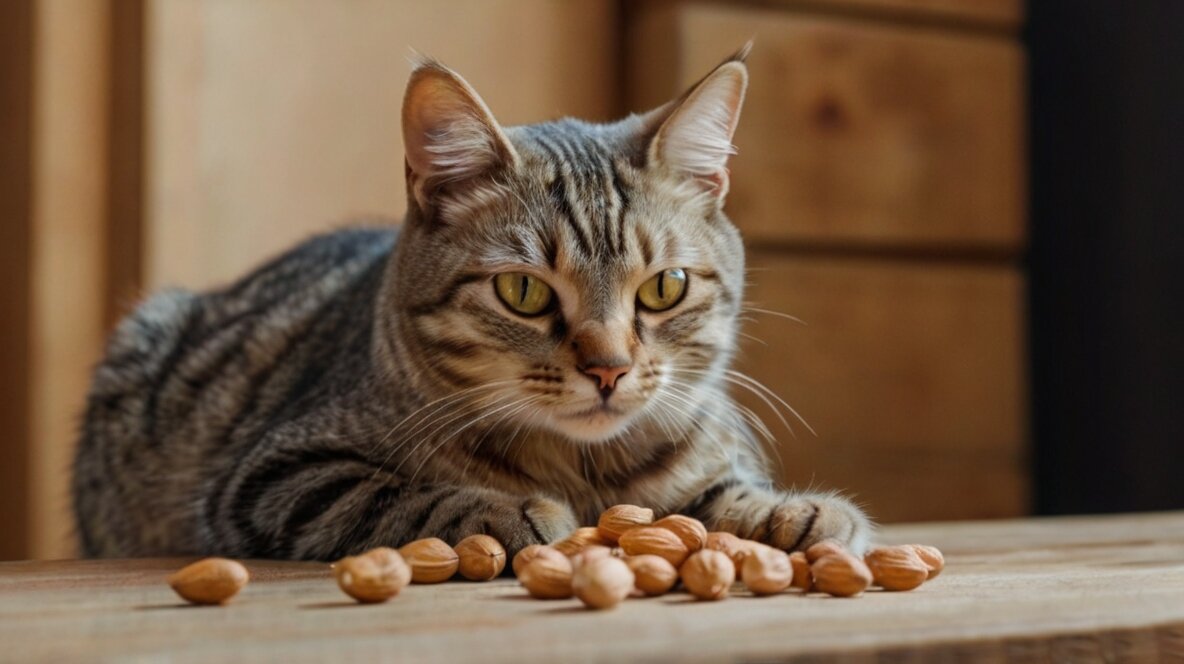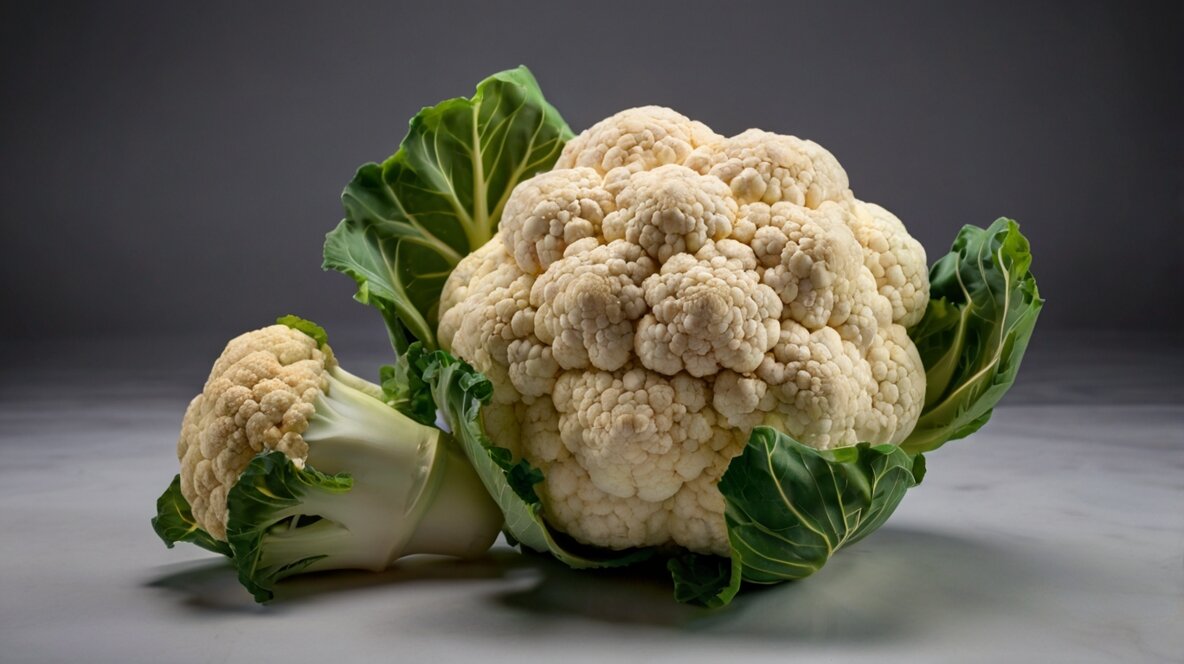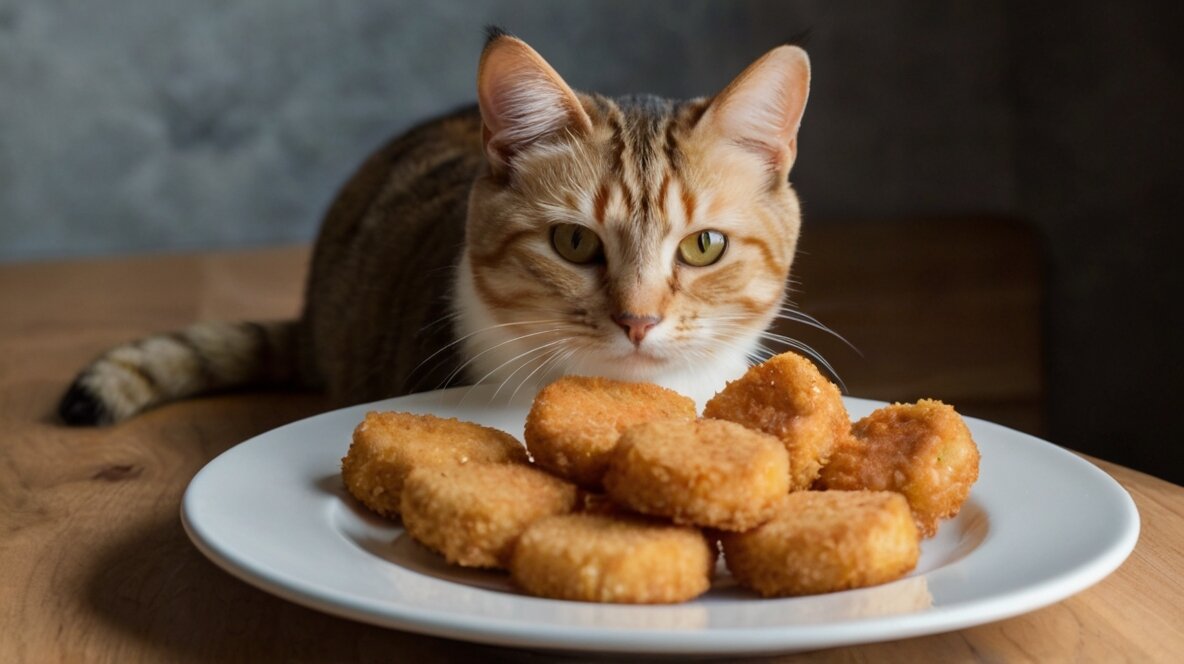Table of Contents
Introduction
“Can My Cat Eat Peanuts”? As a cat owner, you’ve probably wondered about the variety of foods that are safe for your feline friend. One common question is, “Can my cat eat peanuts?” While it may seem harmless to share a snack with your pet, it’s essential to understand the potential risks and benefits associated with feeding peanuts to cats. In this guide, we will explore the nutritional value of peanuts, the possible dangers, and whether they should be a part of your cat’s diet.
Potential Risks of Feeding Peanuts to Cats
While peanuts are not toxic to cats, there are several reasons why they should not be a regular part of their diet: “Can My Cat Eat Peanuts”
1. High Fat Content
- Peanuts are rich in fats, which can lead to obesity and pancreatitis in cats if consumed in large quantities. Cats have specific dietary needs that are low in fat, and feeding them fatty foods like peanuts can disrupt their balanced diet.
2. Choking Hazard
- Peanuts are small and hard, posing a choking risk, especially for cats that are not used to eating such foods. Whole peanuts or large pieces can easily become lodged in a cat’s throat.
3. Digestive Issues
- Cats have sensitive digestive systems, and the high fat and fiber content in peanuts can cause stomach upset, including vomiting and diarrhea. Additionally, cats lack the enzymes to break down plant-based proteins effectively.
4. Allergic Reactions
- Just like humans, cats can have allergic reactions to peanuts. Symptoms may include itching, swelling, and respiratory issues. If you suspect your cat is allergic, avoid feeding them peanuts entirely.
5. Salt and Additives
- Peanuts are often salted or contain additives like sugar and flavorings, which are harmful to cats. Excessive salt can lead to sodium ion poisoning, while artificial additives can cause further health complications.

Food Allergies and Sensitivities
“Can My Cat Eat Peanuts”, Cats can develop food allergies or sensitivities to peanuts, leading to symptoms such as:
- Itchy skin or rashes
- Digestive issues like vomiting or diarrhea
- Respiratory problems
If you notice any of these symptoms after your cat consumes peanuts, discontinue feeding them immediately and consult your veterinarian.
Are There Any Benefits to Feeding Peanuts to Cats?
While the risks often outweigh the benefits, there are a few potential advantages of peanuts, but they should be approached with caution:
1. Source of Protein
- Peanuts do contain protein, which is a vital nutrient for cats. However, the type of protein found in peanuts is plant-based, and cats require animal-based proteins for optimal health.
2. Occasional Treat
- If your cat shows interest in peanuts, a small, unsalted, and unflavored peanut can be given as an occasional treat. However, it should never replace their regular cat food.
3. Rich in Vitamins and Minerals
- Peanuts are a source of vitamins and minerals like Vitamin E, magnesium, and potassium. While these are beneficial, they are not necessary for peanuts, as cats obtain these nutrients from their regular diet.
Conclusion
In summary, while peanuts are not toxic to cats, they are not an ideal food for them either.”Can My Cat Eat Peanuts” The high-fat content, potential for choking, and risk of allergic reactions make peanuts a questionable choice for your cat’s diet. If you’re considering giving your cat peanuts, it should be done sparingly and with caution. Always prioritize a balanced diet tailored to feline needs, and consult your veterinarian before introducing new foods into your cat’s diet.
Frequently Asked Questions (FAQs)
1. Can my cats eat peanut butter instead of peanuts?
- Peanut butter, like peanuts, is high in fat and may contain added sugars or salts, making it a poor choice for cats. It should be given in very small amounts, if at all.
2. What should I do if my cat accidentally eats peanuts?
- If your cat consumes a small amount of unsalted, plain peanuts, they will likely be fine. Monitor them for any signs of distress, such as vomiting or lethargy, and contact your veterinarian if symptoms occur.
3. Are there any nuts that are safe for cats?
- Most nuts, including almonds, walnuts, and macadamia nuts, are not recommended for cats due to their high-fat content and the risk of digestive issues or toxicity.
4. Can peanuts cause pancreatitis in cats?
- Yes, the high fat content in peanuts can contribute to the development of pancreatitis, a potentially life-threatening condition in cats.
5. How can I ensure my cat has a balanced diet?
- The best way to ensure your cat has a balanced diet is by feeding them high-quality commercial cat food that meets AAFCO standards. Supplements and treats should only be given under veterinary guidance.
By understanding the risks and benefits associated with feeding peanuts to your cat, “Can My Cat Eat Peanuts”, you can make informed decisions to keep your feline friend healthy and happy. Always consult with a veterinarian if you have any concerns about your cat’s diet or health.



